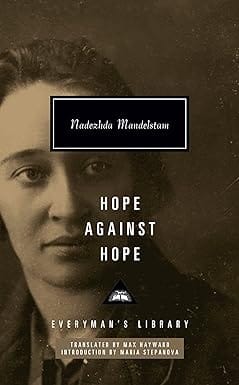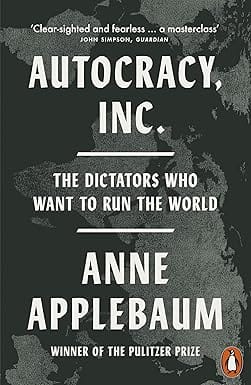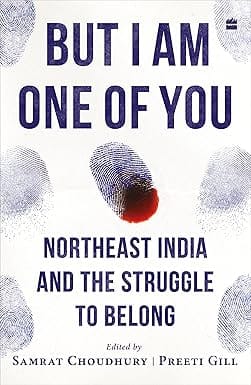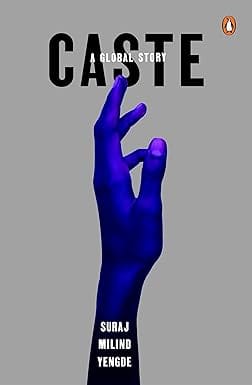-
Contemporary Fiction
- Contemporary Fiction
-
Children
- Children
-
Comics & Graphic Novels
- Comics & Graphic Novels
-
Non-Fiction
- Non-Fiction
-
Fiction
- Fiction
A harrowing yet uplifting account of Stalin's persecution of the Russian intelligentsia in the 1930s, and of one man - Osip Mandelstam (1891-1938), whose poetry, in spite of the unfolding tragedy of his life, preserved its unique creative gaiety. Nadezhda and Osip Mandelstam married in 1922. Nadezhda's memoir covers their last four years together. She begins in Moscow in May 1934 with the knock on the door at one o'clock in the morning, and her husband's arrest by the secret police for composing a satire of Stalin. She tells of his imprisonment, interrogation and exile to the Urals, where she accompanied him, and where he wrote his last great poems; his release and return to Moscow, only to be entrapped, rearrested and sentenced to hard labour in Siberia; of her own efforts to secure his release and to save his manuscripts (and to memorize all his poems in case she could not); of her discovery of the truth about his death in a transit camp near Vladivostock. For all its grim subject matter, it is a story of courage in adversity, and even humour finds a place.
Nadezhda means 'hope' in Russian, and Hope against Hope is one of the greatest testaments to the value of literature and imaginative freedom ever written. It is also a love story that relates the daily struggle to keep both love and art alive in the most desperate circumstances. After years of circulating secretly in the Soviet Union it was published in the West in 1970, and has since achieved the status of a classic.
Review
The witnesses to living on an edge under the tyrant are now many; none, not even Solzhenitsyn, has written better. -- Doris Lessing
Hope against Hope puts [Mandelstam] at the centre of the liberal resistance under the Soviet Union. A masterpiece of prose as well as a model of bilgraphical narrative and social analysis. -- Clive James
A Day of Judgment on earth for her age and its literature -- Joseph Brodsky
About the Author
Hope Against Hope (everymans Library Classics)
SIZE GUIDE
- ISBN: 9781841594125
- Author: Nadezhda Mandelstam
- Publisher: Everymans Library
- Pages: 584
- Format: Hardback
Book Description
A harrowing yet uplifting account of Stalin's persecution of the Russian intelligentsia in the 1930s, and of one man - Osip Mandelstam (1891-1938), whose poetry, in spite of the unfolding tragedy of his life, preserved its unique creative gaiety. Nadezhda and Osip Mandelstam married in 1922. Nadezhda's memoir covers their last four years together. She begins in Moscow in May 1934 with the knock on the door at one o'clock in the morning, and her husband's arrest by the secret police for composing a satire of Stalin. She tells of his imprisonment, interrogation and exile to the Urals, where she accompanied him, and where he wrote his last great poems; his release and return to Moscow, only to be entrapped, rearrested and sentenced to hard labour in Siberia; of her own efforts to secure his release and to save his manuscripts (and to memorize all his poems in case she could not); of her discovery of the truth about his death in a transit camp near Vladivostock. For all its grim subject matter, it is a story of courage in adversity, and even humour finds a place.
Nadezhda means 'hope' in Russian, and Hope against Hope is one of the greatest testaments to the value of literature and imaginative freedom ever written. It is also a love story that relates the daily struggle to keep both love and art alive in the most desperate circumstances. After years of circulating secretly in the Soviet Union it was published in the West in 1970, and has since achieved the status of a classic.
Review
The witnesses to living on an edge under the tyrant are now many; none, not even Solzhenitsyn, has written better. -- Doris Lessing
Hope against Hope puts [Mandelstam] at the centre of the liberal resistance under the Soviet Union. A masterpiece of prose as well as a model of bilgraphical narrative and social analysis. -- Clive James
A Day of Judgment on earth for her age and its literature -- Joseph Brodsky
About the Author
Related Books
User reviews
NEWSLETTER
Subscribe to get Email Updates!
Thanks for subscribing.
Your response has been recorded.

India's Iconic & Independent Book Store offering a vast selection of books across a variety of genres Since 1978.
"We Believe In The Power of Books" Our mission is to make books accessible to everyone, and to cultivate a culture of reading and learning. We strive to provide a wide range of books, from classic literature, sci-fi and fantasy, to graphic novels, biographies and self-help books, so that everyone can find something to read.
Whether you’re looking for your next great read, a gift for someone special, or just browsing, Midland is here to make your book-buying experience easy and enjoyable.
We are shipping pan India and across the world.
For Bulk Order / Corporate Gifting
 +91 9818282497 |
+91 9818282497 |  [email protected]
[email protected]
Click To Know More
INFORMATION
POLICIES
ACCOUNT
QUICK LINKS
ADDRESS
Shop No.20, Aurobindo Palace Market, Near Church, New Delhi














